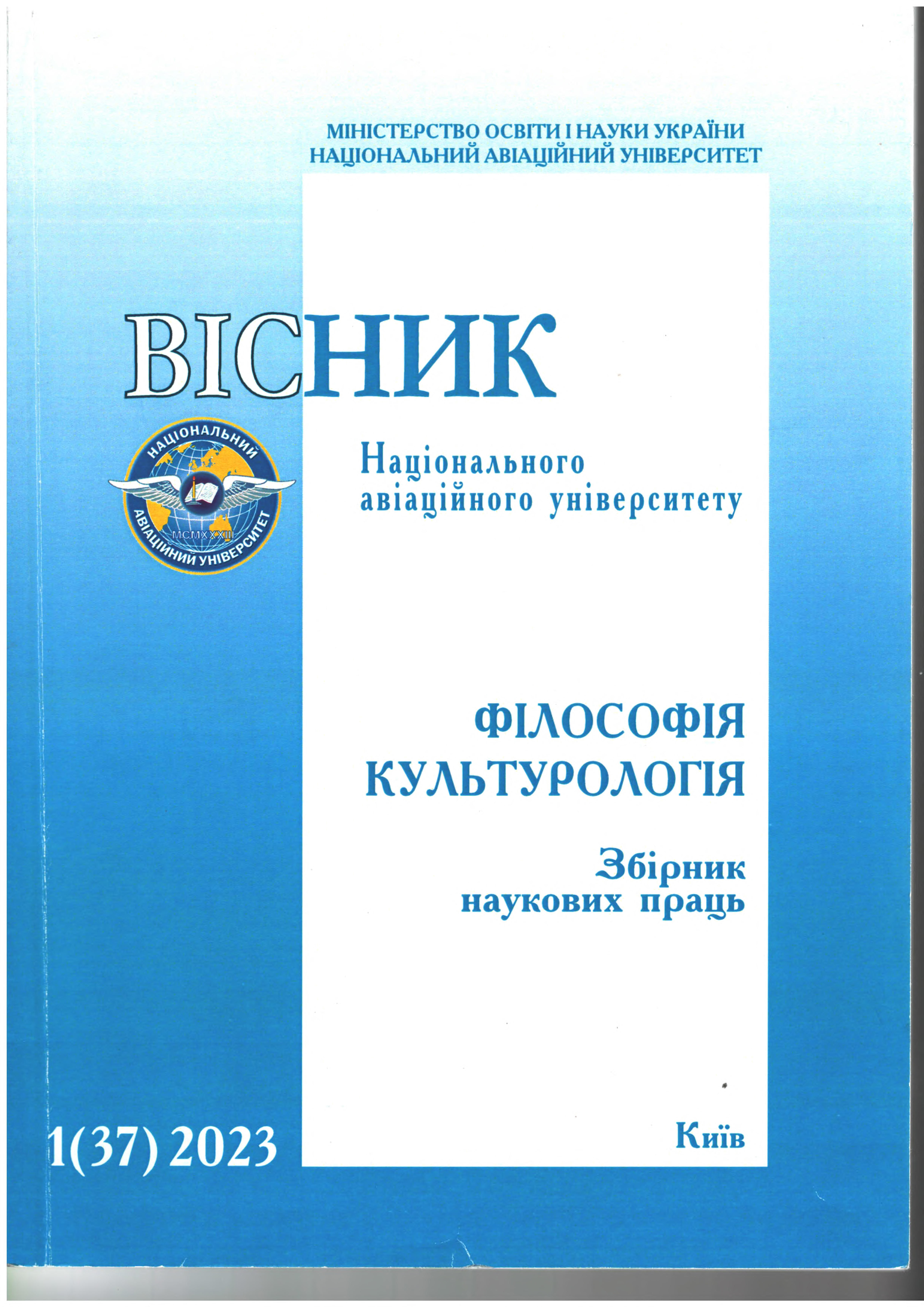BIOSOCIAL AND PSYCHOGENETIC APPROACHES IN THE STUDY OF ALTRUISM
DOI:
https://doi.org/10.18372/2412-2157.37.17582Keywords:
альтруїзм, егоїзм, соціобіологія, теорія еволюції, психогенетика, ген альтруїзму, егоїстичний ген, мораль, етикаAbstract
Introduction. The modern problems of philosophy are the problems of the individual and society. All the philosophical constructs of the
essence and origin of altruism indicate the insufficiency of biological knowledge about man and the need for the development of a
philosophical theory of egoism and altruism in the natural scientific direction. In this context, two controversial questions need to be
resolved: why has the biosphere not turned into a realm of global friendship and mutual assistance to do vital tasks with joint efforts, and
how can cooperation and altruism arise in the process of evolution, if its driving force is the mechanism of natural selection? The aim of
the research is to conduct a review of scientific sources in the field of sociobiology and psychogenetics, which reveal the general
sociobiological essence of altruism, the biological origin of this phenomenon and its evolutionary significance for humans. Research
methodology involves an interdisciplinary methodological approach, a systematic methodological approach, the method of
historiographical analysis, comparative analysis, methods of theoretical research, analysis and synthesis. Research results. It was
found that altruism is the ability to care about others, to sacrifice oneself for the sake of others, contributes to the continuation of the
family and forms the level of well-being and survival of humanity in general. Egoism and altruism are oppositely directed models of
evolutionary behavior and play an important role in the formation of social relations. These two phenomena are controlled by a single
mechanism of psychogenetic heredity. In this vein, quite contradictory theories are considered - the concept of the "altruistic gene" by V.
Efroimson and of the "selfish gene" by R. Dawkins. Discussion. The results of experimental studies indicate that no psychological trait
or feature of human behavior is formed without the participation of hereditary factors. The manifestation of egoism in the majority occurs
without the participation of consciousness, automatically; the manifestation of altruism is associated with a more developed intelligence.
But the natural dualism between altruism and egoism enables each individual to survive both as a separate organism and as a member
of society. Egoism and altruism are two antagonistic manifestations of some qualities of an individual human character, which depend
on both the fate of an individual and his loved ones, as well as the direction of the historical development of all mankind. Conclusions.
It is known that almost every person is prone to altruism as well as to egoism, and the nature of their actions depends on the situation.
But there are also more permanent trends of behavior that depend on culture and moral norms, as well as on innate features of the
psyche. When studying altruism, one always takes into account the natural duality between selfishness and altruism, which is
manifested in the behavior of animals and humans. The problem of altruism, remaining even today a "cornerstone" for biologists,
geneticists, philosophers and representatives of the humanities and theology, education, pedagogical sciences, social behavioral
sciences, needs its solution, in particular the definition and establishment of the place of the phenomenon of altruism in the spectrum of
ethical categories.
References
Aubrey Manning, Marian Stamp Dawkins: An Introduction to
Animal Behaviour: Cambridge University Press (Mar 26th, 2012):
Charles J. Lumsden, Edward O. Wilson: Genes, Mind, and
Culture The Coevolutionary Process: World Scientific Publishing
Company; 25th Anniversary ed. edition (August 12, 2005): 496.
David McFarland : A Dictionary of Animal Behaviour : Oxford
University Press; Illustrated edition (June 15, 2006): 240.
Donald A. Dewsbury: Comparative Animal Behavior. McGraw-
Hill Companies; 0 edition (January 1, 1978): 452.
Herbert Spence: A System of Synthetic Philosophy. First
Principles. Vol. I Hardcover. November 4, 2008: 240.
Konrad Lorenz: Die acht Todsünden der zivilisierten
Menschheit. Serie Piper, Bd. 50, 1. Auflage, München 1973.
Lamsden Ch., Gurshurst A. Genetic-cultural co-evolution: the
human race in becoming. Chelovek [Human], 1991, (3): 11–22.
Lumsden C. J. Does Culture Need Genes? Ethology and
Sociobiology. 1989. (10): 11-28.
Otto Thomas Solbrig, Dorothy J. Solbrig: Introduction to
Population Biology & Evolution: Addison-Wesley Publishing
Company, 1979: 468.
Wilson, E. O. ‘The Social Instinct’, Bulletin of the American
Academy for Arts and Sciences 30, 1977 : 11–25.
Гуменюк, Ю. Причинно-наслідкові зв`язки ефективного
альтруїзму як умови розвитку суспільного порядку після
пандемії. Вісник НАУ. Серія : Філософія. Культурологія. 2021.
№ 1 (33): 79-84.
Дротянко, Л. Г. Трансформація людської природи в
контексті системи «людина – природа». Вісник НАУ. Серія :
Філософія. Культурологія. 2022. № 1 (35): 5-10.
Зіґмунд Фройд: Вступ до психоаналізу. Переклад з
німецької: Петро Таращук. Київ: Основи, 1998: 709.
Річард Докінз: Егоїстичний ген. Харків: Клуб сімейного
дозвілля, 2017. 544.
Сухова, Н. М. Пандемія: загроза чи урок людству в ХХІ
столітті? Вісник Національного авіаційного університету.
Серія: Філософія. Культурологія. 2 (32). 2020. 135-140.
The Erich Fromm Reader. Readings Selected and Edited by
Rainer Funk. Foreword by Joel Kovel, New Jersey (Humanities
Press) 1994.
Ефроїмсон Володимир Павлович. Енциклопедія Сучасної
України. НАН України, НТШ. К.: Інститут енциклопедичних
досліджень НАН України, 2009. URL: https://esu.com.ua/article-

